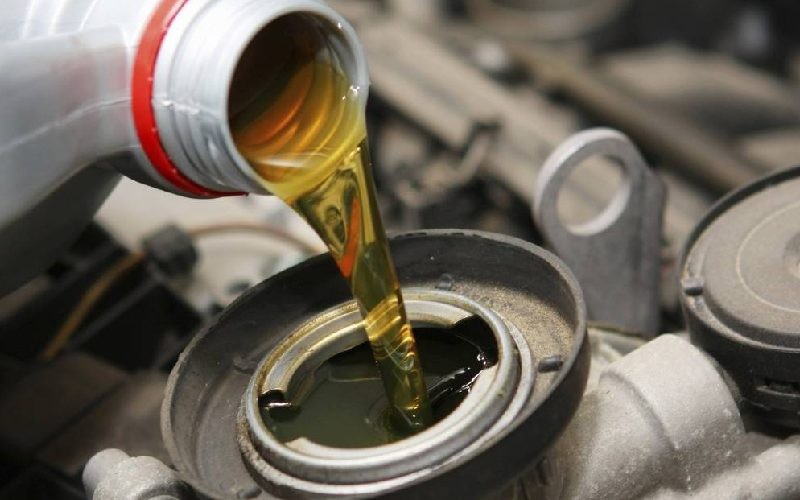
Audi A1 Oil Change Guide: Step-by-Step Instructions
Changing the oil in your Audi A1 is a crucial part of routine maintenance that ensures your engine runs smoothly and efficiently. Regular oil changes extend the life of your engine and help maintain optimal performance. In this step-by-step guide, we'll walk you through the process of changing the oil in your Audi A1.
Materials You'll Need: Before you begin, gather the following materials:
Step 1: Prepare Your Audi A1
Make sure your Audi A1 is parked on a level surface and the engine is turned off. Allow the engine to cool for a few minutes if it has been running.
Step 2: Gather Your Tools
Collect all the necessary tools and materials to ensure a smooth and efficient oil change process.
Step 3: Locate the Oil Drain Plug and Filter
Refer to your Audi A1 owner's manual to find the exact location of the oil drain plug and the oil filter. Typically, the oil drain plug is located on the underside of the engine, and the oil filter is nearby.
Step 4: Drain the Old Oil
Place the oil drain pan under the oil drain plug. Use the socket and ratchet set to carefully remove the drain plug. Allow the old oil to drain completely into the pan.
Step 5: Remove the Old Oil Filter
Use the oil filter wrench to remove the old oil filter. Be prepared for some oil to spill when you remove it. If the filter is difficult to remove by hand, you may need an oil filter removal tool and drain tray.
Step 6: Prepare the New Oil Filter
Before installing the new oil filter, apply a small amount of fresh engine oil to the rubber gasket on the top of the filter. This helps create a proper seal.
Step 7: Install the New Oil Filter
Screw the new oil filter into place by hand. Once it's snug, give it a quarter to a half turn more to secure it. Do not over-tighten.
Step 8: Replace the Oil Drain Plug
After all the old oil has drained, replace the oil drain plug and tighten it with the socket and ratchet set.
Step 9: Add New Engine Oil
Use a funnel to pour the correct amount of new engine oil into the engine. Refer to your owner's manual for the specific oil grade and capacity.
Step 10: Check the Oil Level
Start your Audi A1's engine and let it run for a minute. Then turn it off and wait a few minutes for the oil to settle. Check the oil level using the dipstick, ensuring it's within the recommended range.
Step 11: Dispose of Old Oil Properly
Dispose of the old oil and oil filter in an environmentally responsible manner. Many auto parts stores and recycling centers accept used oil.
By following these strong step-by-step instructions, you can perform an oil change on your Audi A1, helping to keep your engine in optimal condition and ensuring a smooth and efficient ride.

Your Audi A1 is more than just a means of transportation; it's a symbol of luxury and performance. To keep it running at its best, regular oil maintenance is crucial. Neglecting your Audi's engine oil can lead to a cascade of problems that may ultimately affect your vehicle's reliability and longevity. In this article, we emphasize the significance of adhering to a stringent oil maintenance schedule for your Audi A1.
1. Engine Lubrication:
Proper engine lubrication is the lifeblood of your Audi's powerplant. Engine oil serves to reduce friction between moving parts, preventing wear and tear. This, in turn, ensures optimal performance and extends the engine's lifespan.
2. Cooling and Heat Dissipation:
In addition to lubrication, engine oil also plays a critical role in cooling. It absorbs and dissipates heat generated by the engine, helping to maintain optimal operating temperatures. Neglecting oil changes can result in overheating and engine damage.
3. Fuel Efficiency:
Regular oil changes maintain fuel efficiency. Dirty or degraded oil increases engine friction, causing it to work harder and consume more fuel. Fresh, high-quality oil keeps your Audi A1 running efficiently.
4. Engine Cleanliness:
Clean oil is essential for a clean engine. It carries away debris and contaminants, preventing sludge buildup. Old oil can become thick and sludgy, which hampers engine cleanliness and can lead to clogs and damage.
5. Reduced Emissions:
Efficient engine operation, driven by proper oil maintenance, results in reduced emissions. Your Audi A1 will run cleaner, contributing to a healthier environment.
6. Resale Value:
A well-maintained Audi A1 with a consistent oil change history commands a higher resale value. Prospective buyers appreciate a vehicle with a documented maintenance record, which reflects positively on its condition.
7. Warranty Compliance:
Adhering to the manufacturer's recommended oil change intervals is often a prerequisite to warranty compliance. Failing to maintain a proper oil change schedule could jeopardize your warranty coverage.
8. Peace of Mind:
Regular oil maintenance provides peace of mind. Knowing that your Audi A1's engine is well cared for ensures a worry-free driving experience.
Conclusion:
In summary, the importance of regular oil maintenance for your Audi A1 cannot be overstated. It is an investment in your vehicle's performance, longevity, and value. To fully enjoy the luxury and precision engineering of your Audi, make oil changes a priority. Consult your owner's manual or an authorized Audi service center to determine the ideal oil change schedule for your specific model. Your Audi A1 deserves nothing less than the best, so give it the gift of clean, high-quality oil regularly.
Your Audi A1 is a precision-engineered vehicle, and maintaining it properly is crucial for ensuring its longevity and performance. One of the most critical aspects of maintenance is selecting the right engine oil. The engine oil you choose can significantly impact the efficiency and lifespan of your Audi A1's engine.
Why Engine Oil Matters
Engine oil serves as the lifeblood of your car's engine. It lubricates moving parts, reduces friction, and dissipates heat. Choosing the wrong oil or neglecting oil changes can lead to excessive wear and tear on your engine, potentially resulting in costly repairs. To keep your Audi A1 running smoothly, follow these guidelines when selecting the right engine oil.
1. Refer to the Owner's Manual
The Audi A1 owner's manual is your best source for information on the recommended engine oil. Audi engineers have carefully selected the ideal oil type and viscosity for your specific engine. By following their recommendations, you ensure that your engine operates optimally.
2. Consider Oil Viscosity
Engine oils come in different viscosities (thicknesses). Common viscosity grades include 5W-30, 5W-40, and 10W-40. The first number indicates the oil's flow characteristics in cold weather, while the second number represents its behavior at high temperatures. The ideal viscosity for your Audi A1 may vary depending on the engine model and climate conditions.
3. Synthetic vs. Conventional Oil
You'll typically have a choice between synthetic and conventional engine oils. Synthetic oils are more refined and offer superior performance and protection. While they may be more expensive, they are often the recommended choice for high-performance and luxury vehicles like the Audi A1. However, consult your owner's manual for guidance on the type of oil best suited for your engine.
4. Change Interval
Regular oil changes are essential for maintaining your Audi A1. Follow the manufacturer's recommendations for oil change intervals. Many Audi A1 models utilize an onboard computer that monitors the condition of the oil and alerts you when it's time for a change.
5. Quality Matters
Choose a reputable oil brand that meets Audi's quality standards. Audi has specific oil standards (e.g., VW 504 00, VW 502 00) that engine oils must meet to ensure compatibility with your vehicle.
6. Consult a Professional
If you're unsure about which engine oil is right for your Audi A1, consult with a qualified mechanic or an Audi service center. They can provide guidance and perform the oil change using the correct oil and filter.
In conclusion, choosing the right engine oil for your Audi A1 is essential for maintaining its performance and longevity. Always refer to your owner's manual and adhere to recommended oil change intervals. By using the right oil, you'll keep your Audi A1's engine running smoothly for many miles to come.

Audi, known for its luxury and performance, manufactures the compact and stylish Audi A1. While the Audi A1 is a remarkable vehicle, like any car, it may encounter oil-related issues that require attention. In this article, we will explore some common oil-related problems in the Audi A1 and provide guidance on how to address them.
1. Oil Leaks:
2. Oil Consumption:
3. Dirty or Contaminated Oil:
4. Oil Pressure Warning Light:
5. Choosing the Right Oil:
6. Regular Maintenance:
In conclusion, while the Audi A1 is an excellent vehicle, addressing oil-related issues is crucial to keep it in top condition. By being vigilant about oil leaks, consumption, and quality, and by following a regular maintenance schedule, Audi A1 owners can ensure their car's engine runs smoothly and efficiently.

When it comes to maintaining the performance and longevity of your Audi A1's engine, one critical decision is choosing the right engine oil. Engine oil serves as the lifeblood of your vehicle, providing lubrication, cooling, and protection to vital engine components. However, the choice between synthetic and conventional oil can be a pivotal one. In this article, we delve into the differences between these two types of motor oils and help you determine which is the best choice for your Audi A1.
Understanding Synthetic Oil:
Synthetic oil is engineered in a laboratory, meticulously designed for optimal performance. It offers several key advantages:
Enhanced Lubrication: Synthetic oil provides better lubrication, reducing friction and wear on engine parts. This results in smoother engine operation and potentially extends engine life.
Improved Cold-Weather Performance: It flows more easily in cold temperatures, ensuring your engine is protected from the moment you start your vehicle, which is particularly important in regions with harsh winters.
Resistance to Heat and Oxidation: Synthetic oil resists breakdown at high temperatures, maintaining its viscosity and protective qualities for longer periods. It also exhibits better resistance to oxidation, which helps keep the engine clean.
Fewer Deposits: Its cleaner-burning properties result in fewer deposits in the engine, which can improve engine efficiency.
Exploring Conventional Oil:
Conventional oil, also known as mineral oil, is derived from crude oil. While it has been the standard for many years, it has certain limitations:
Lubrication Properties: It may not offer the same level of lubrication as synthetic oil, potentially causing more friction and wear over time.
Viscosity in Extreme Temperatures: Conventional oil can become thicker in cold temperatures, which means it may take longer for the engine to receive proper lubrication when you start your vehicle in the morning.
Thermal Stability: It is generally less stable at high temperatures, breaking down faster and potentially leaving engine components exposed to damage.
Making the Best Choice for Your Audi A1:
To determine whether synthetic or conventional oil is the best fit for your Audi A1, consider the following factors:
Owner's Manual: Check your Audi A1's owner's manual for the manufacturer's recommended oil type and viscosity. Following these guidelines is crucial for maintaining your warranty and optimal engine performance.
Driving Conditions: Evaluate your typical driving conditions. If you frequently drive in extreme temperatures, experience heavy traffic, or engage in high-performance driving, synthetic oil may be the better choice.
Maintenance Budget: While synthetic oil generally costs more, it can help you save on engine repairs and fuel efficiency in the long run.
In conclusion, synthetic oil offers superior protection and performance for your Audi A1, making it the best choice for most drivers. However, it's essential to follow Audi's recommendations to ensure the health of your engine. Always consult your owner's manual and consider your driving habits when making this critical decision. By choosing the right oil, you can keep your Audi A1's engine running smoothly and efficiently for years to come.
Published: Saturday, October 14, 2023 Viewed 127 times.
127 times.
tepte.com: Your Questions and Answers Resource with a Wealth of General Knowledge
Are you seeking a one-stop destination for comprehensive knowledge and answers to your burning questions? Look no further than tepte.com! Our platform is your go-to source for a wide range of information, all conveniently presented in an easily accessible question and answer format.
At tepte.com, we pride ourselves on being your reliable knowledge hub. Whether you're curious about technology, science, history, or any other subject under the sun, our extensive General Knowledge (GK) knowledge base has you covered. We've made it our mission to provide you with in-depth insights and facts on an array of topics. Read more